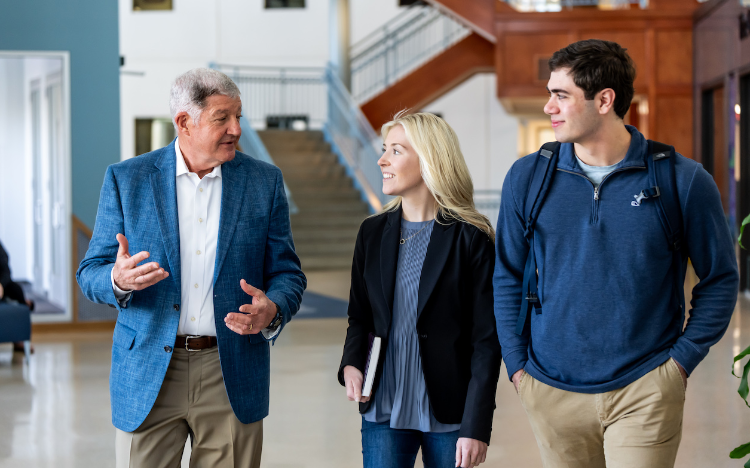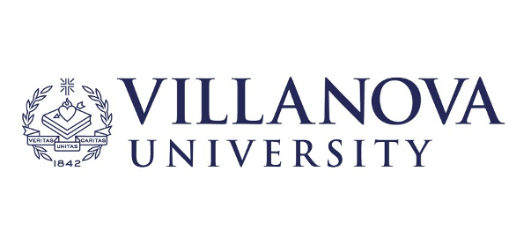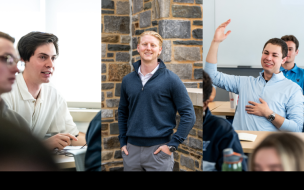Whether you want to work as an auditor, tax professional, or consultant for a Big Four or a boutique accounting firm, it’s vital that you become an agile, multi-dimensional Certified Public Accountant (CPA).
The Master of Accounting with Data Analytics (MAC) and Master of Business Taxation with Data Analytics (MBT) at the Villanova School of Business (VSB) both integrate data analytics with essential skills, such as valuation, risk, tax, fraud, and qualitative skills, to enable students to become multi-dimensional accountants within audit or advisory services, corporate accounting, finance, and taxation, as well as associated consulting roles.
The highly specialized MAC program incorporates the latest thinking on data analytics with the cutting-edge skills in substantive accounting and auditing that employers are seeking.
Similarly, the Master of Business Taxation with Data Analytics focuses on areas such as quantitative applications in modelling, data, analytics, and technology, and incorporates substantive taxation skills for those striving for a career as a tax professional within the accounting industry.
Ed Liva, faculty director of the MBT and the MAC, and Professor of Practice in Accounting and Information Systems, speaks to BusinessBecause about what students can expect from both programs, and how these two degrees can help students on their CPA journey.
How do the MAC and MBT reflect the evolving role and requirements of accountants?
Traditionally, accounting students would learn their skill set through experiential learning.
“This involves repetitive and mundane tasks, manual entries on spreadsheets, gathering data from the client and manipulating it manually, and then getting it to a point where it could be analyzed,” says Ed (pictured).
He explains that this is no longer the case—the programs aim to upskill those new associates with the skills that they won't learn on the job anymore. The programs teach students to evaluate, review, and analyze the work that is now being prepared and generated by AI and outsourcing.
When designing the MAC and MBT programs, the business school called in an advisory board of existing CPAs from the Big Four and other large companies.
“These professionals provide guidance as to what skills they look for in newly hired associates. There's always a need for what we call substantive skills, or sometimes technical skills, that's the blocking and tackling of accounting and auditing,” says Ed.
Both programs, he adds, develop core skills such as data and analytics, leadership, communication, supervision, mentoring, and time management. “Whether you're in the MAC or the MBT, you'll be getting the same data and analytics skill sets.”
How are the programs designed to equip aspiring CPAs with the skills and knowledge they need?
Ed explains that both programs give students a stronger skill set and puts them in a position to evaluate, review, and analyze the information produced by AI or offshoring. Meanwhile, the MAC students gain substantive skills and knowledge in the areas of audit and accounting, and the MBT students gain substantive knowledge in the areas of accounting and taxation.
Ed breaks down the skills students learn on both programs into three distinct categories:
→ Substantive or technical:
Ed says that while students will learn some substantive and technical skills at undergraduate level, the MAC program takes it to the next level.
“It’s about the blocking and tackling of being an accountant or auditor,” he says. “Students gain skills in our program that they wouldn’t gain until their second or third year in the profession.”
Ed explains that the MBT program offers more than the usual one or two tax courses in an undergraduate degree. Students take an extra four or five tax and accounting courses, giving them a much deeper understanding of tax and transactional concepts and real-world applications.
→ Technology and data analytics:
Students learn all aspects of the various data and analytic tools, familiar and emerging, that the profession uses.
“We stay very current because technology changes so fast. We want our students to be comfortable with a wide range of tools.”
Ed estimates that roughly half of the the courses in the MAC and MBT program are made up of substantive teaching and another high percentage are based on the technology tools used in the profession.
→ Soft skills:
These include basic leadership—knowing how to lead a group of people—communication and supervision skills, and mentoring skills.
“I like to call them impact skills, things that will have an impact on people’s careers,” he says.
There is also an emphasis on time management: “Learning how to manage multiple tasks at once.”
How will these skills help students progress their careers?
Ed says that the feedback he gets from the profession and from the firms that are hiring MAC and MBT graduates is that VSB has a strong understanding of the skill sets that new associates require.
Students progress rapidly in their careers when they finish the program, he adds.
The program is also instrumental in helping students pass their CPA exam, he explains.
“If you're coming right out of undergrad and going straight to a firm, you're expected to study for the CPA exam on your own, on top of everything else that goes with starting a new role.
“Most of our students have most or all four parts of the CPA exam completed by the time they're finished with our program, or shortly thereafter.
“The MBT program provides students with a deeper understanding of taxation and gives them the ability to work in almost every area of specialization that exists in tax, leading to accelerated promotions and higher responsibilities in tax practice.”
How does the latest thinking on data analytics inform the courses?
The MAC and MBT programs have advisory boards of professionals specializing in accounting, taxation, and data analytics. They meet with program leaders once or twice a year to review the curriculum, content, and skill sets, ensuring nothing essential is overlooked.
The firms on the board are also designing, building, and managing technology to use in servicing their own clients and will often license new software to the university. This means that students can gain hands-on experience of working with new technologies.
The hands-on experience students gain on whichever program they pursue will prove invaluable in progressing their chosen career.
“Once students graduate and are working in an accounting firm, they will be working side by side with their counterparts in audit, tax, and consulting,” concludes Ed.
Student Reviews
Villanova School of Business







